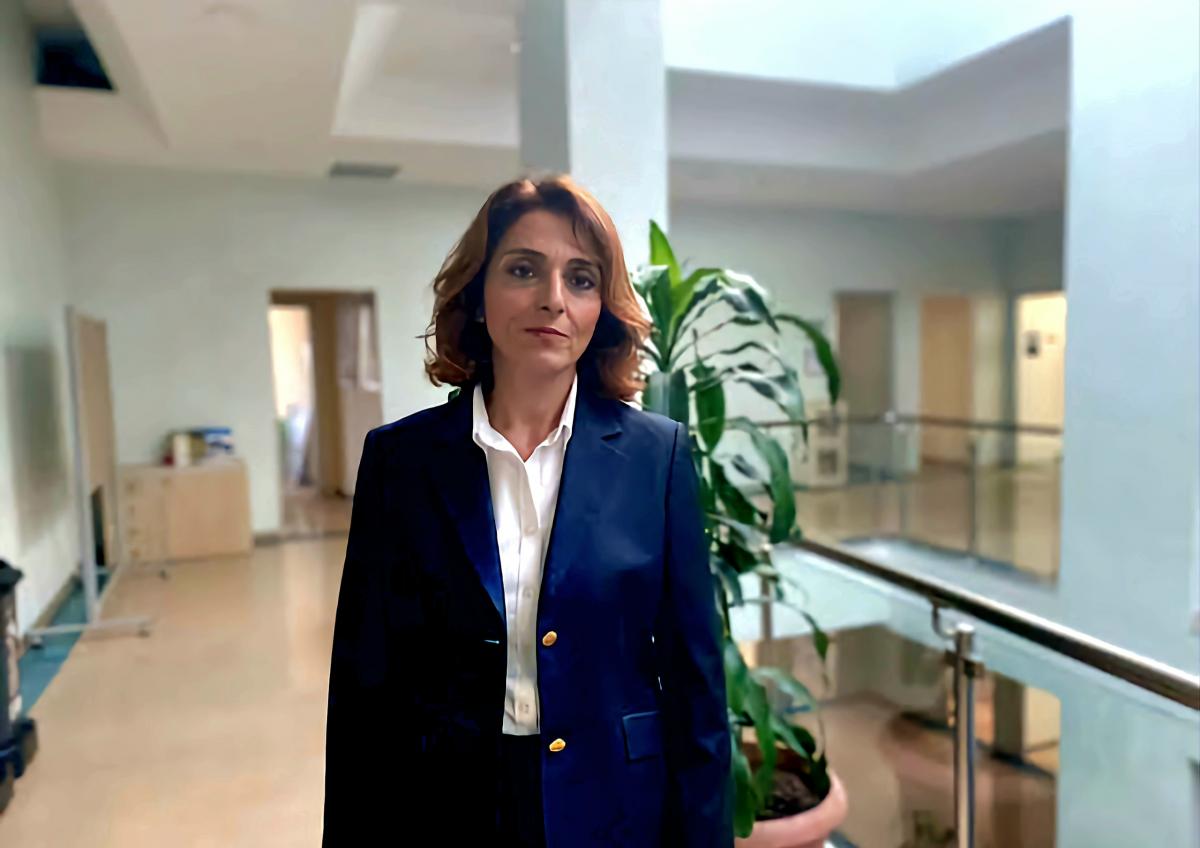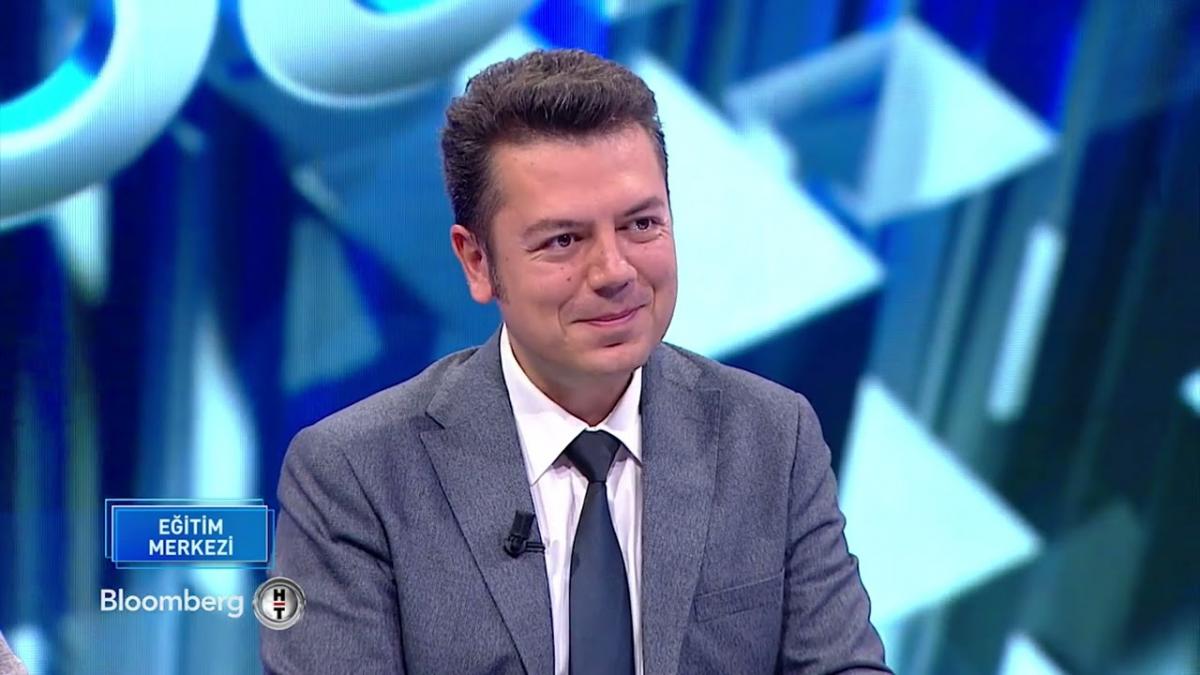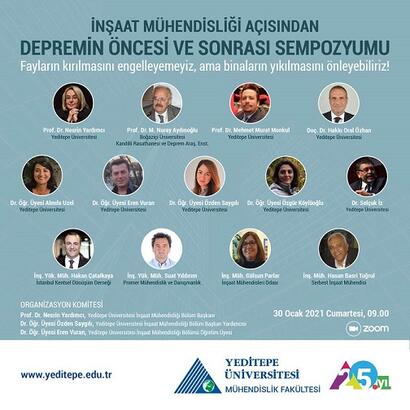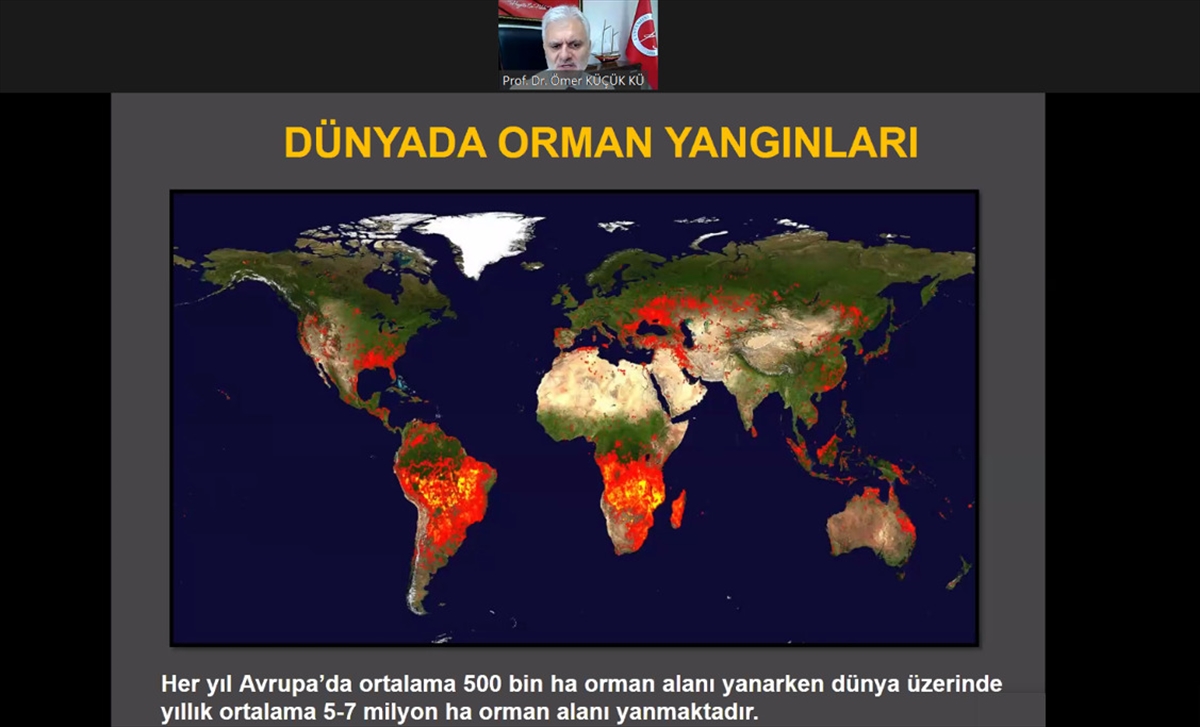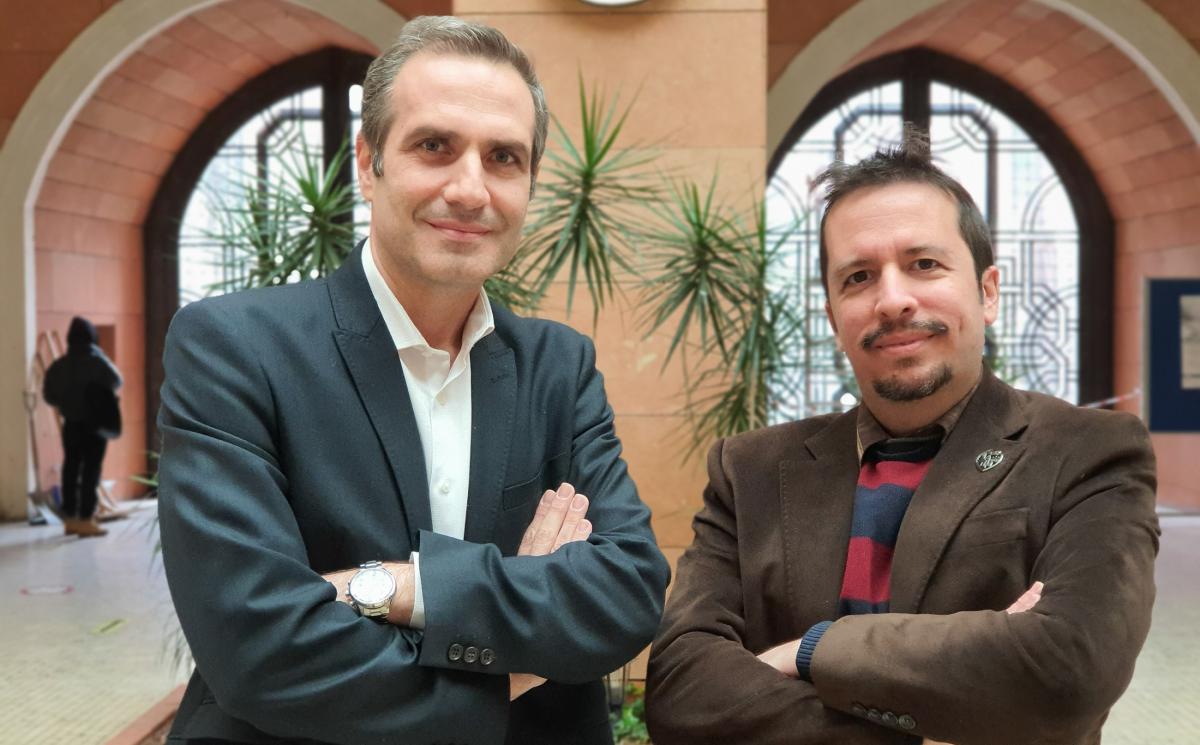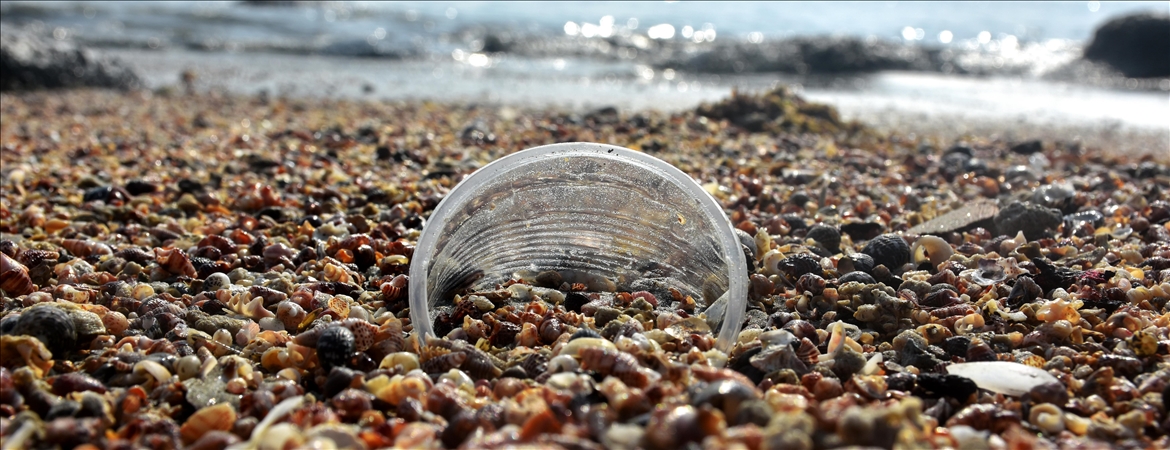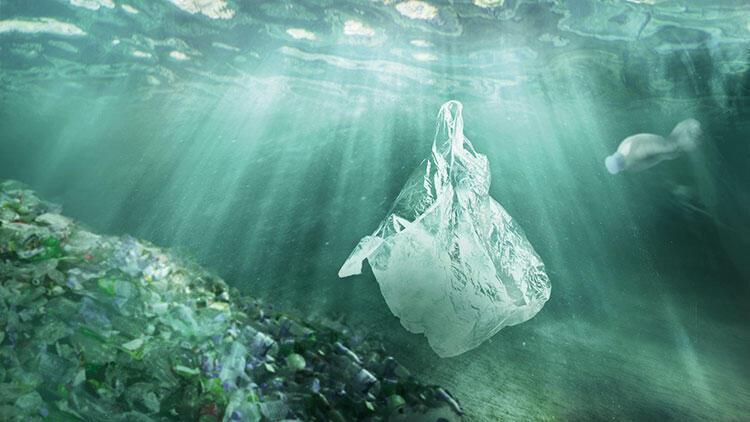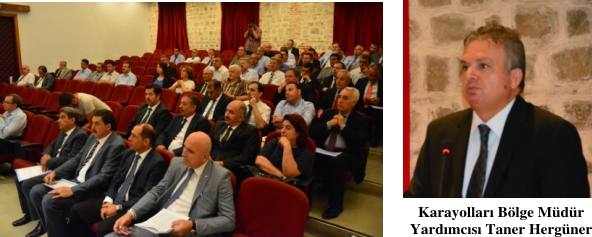Civil Engineering Department
About the Department
Humanity always needs the structures that Civil Engineering will realize. Therefore, the aim of Yeditepe University Civil Engineering Department is for graduates to find a job for themselves and even start their own business, both at home and abroad, in line with its vision. Human relations come to the fore in this profession. For example, in a building, there are situations of collaboration with architects, mechanical engineers, electrical engineers. Yeditepe University Civil Engineering students can embellish their careers with the opportunity of a second foreign language. In this context, students are offered the opportunity to learn Russian, Chinese and Arabic languages. In this department, all academic staff teach in their own staff. In this context, the Department of Civil Engineering has an expert and experienced teaching staff. In order for students to complete their education period, they must have completed 20 days of office and 20 days of construction site internships. Yeditepe University Civil Engineering courses are mainly taught in the form of practical courses besides the theoretical courses. In this way, students can absorb the lessons more and have the necessary equipment. In addition, students can contact the leading organizations of the sector in practice courses and learn the answers to the questions that come to their minds from the individuals in the sector themselves. It is seen that Yeditepe University has a respectable place in the ranking list of Civil Engineering Department in Turkey. In addition, it is seen that 93% of the department graduates find a job, and 31% of them progress to their career goals by completing a master's degree. Yeditepe University Civil Engineering program is a strong curriculum that is constantly renewed in line with the conditions and needs of the day.
Yeditepe University, Civil Engineering Department graduates;
- Gain the basic qualifications, knowledge and skills that will be needed in the application areas of Civil Engineering and in business life,
- Having gained the necessary infrastructure for postgraduate education after undergraduate education, equipped to continue his career with graduate education both at home and abroad,
- Being able to follow the current developments in the sector and having the opportunity to develop projects in this context,
- It makes great efforts to raise individuals with employment qualifications in various public and private sector institutions.
![]() Yeditepe Üniversitesi İnşaat Mühendisliği Bölümü | LinkedIn
Yeditepe Üniversitesi İnşaat Mühendisliği Bölümü | LinkedIn
Yeditepe University Civil Engineering Department has been accredited by MÜDEK-Engineering Education Programs Evaluation and Accreditation Association. MÜDEK has the Quality Evaluation and Registration Certificate issued by the Higher Education Quality Board (YÖKAK).
With MÜDEK accreditation, our education program has also received the EUR-ACE (European Network for Accreditation of Engineering Education) label, and our graduates have gained the flexibility to work in international professional or academic environments.
For more information, you can visit the MÜDEK website:
https://www.mudek.org.tr/tr/akredit/akredite2024.shtm
https://www.mudek.org.tr/tr/hak/disdeg.shtm
https://www.enaee.eu/eur-ace-system/
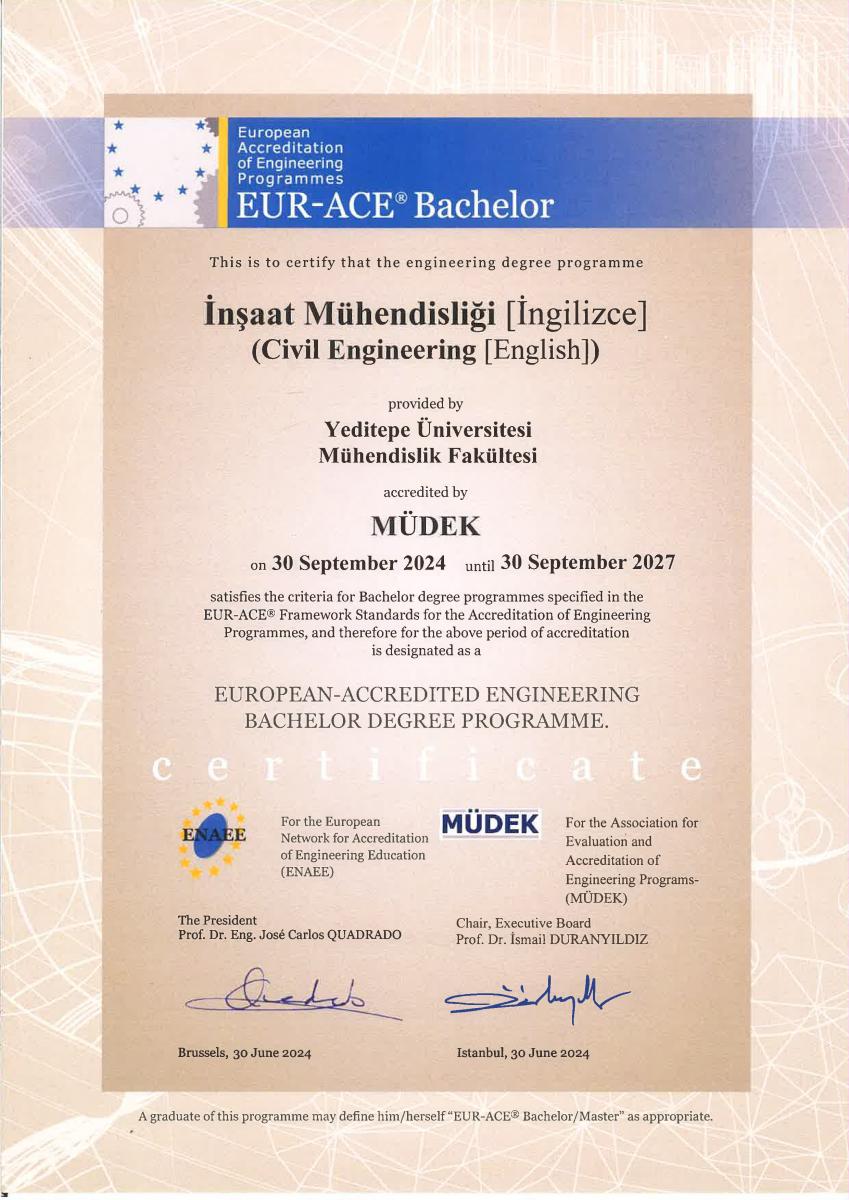
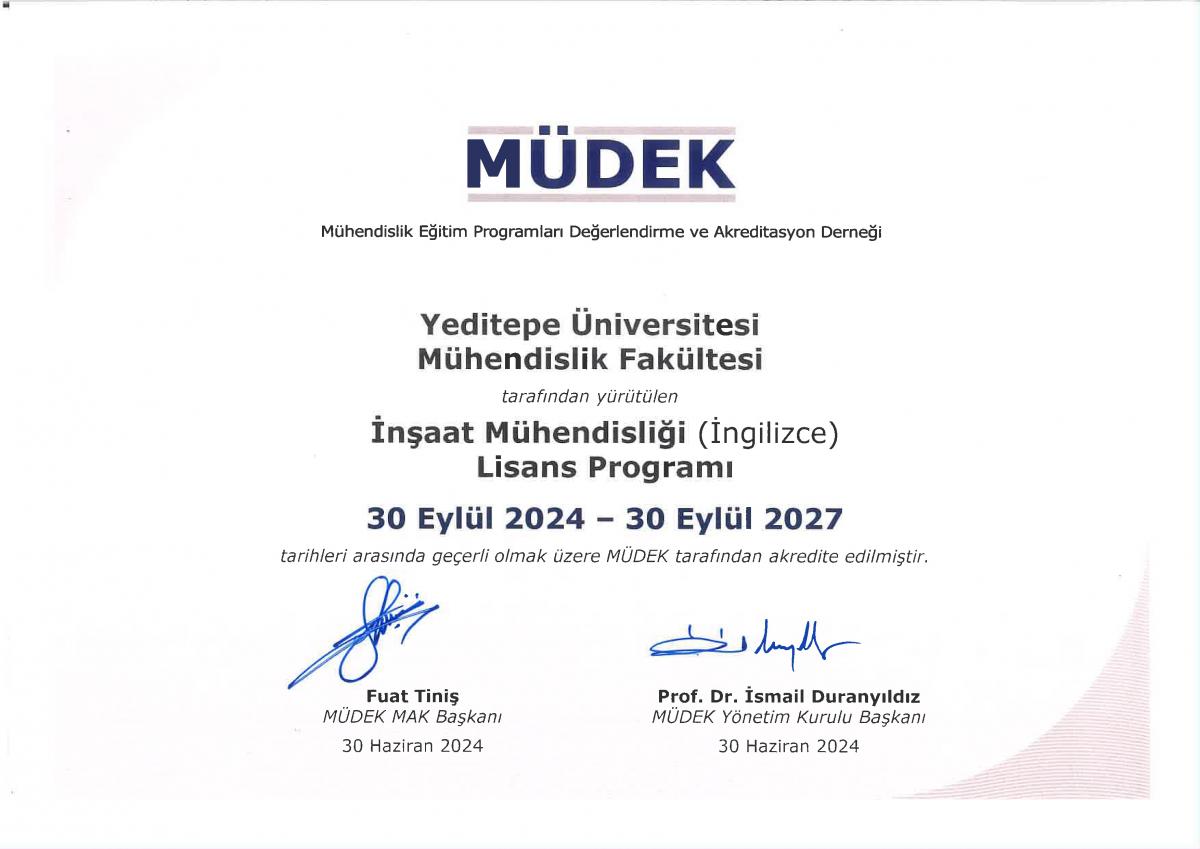

Civil Engineering is the branch of engineering that provides the design and construction of structures necessary for people's housing, transportation and infrastructure needs in a way to provide safe service. These structures may be exposed to different load conditions such as earthquakes, high winds, snow, floods, etc. in different environments such as above ground, underground, in the seas and in different environments according to the characteristics of the geography where they are located. Taking all these effects into account, it is the duty of civil engineers to provide the necessary preliminary investigation, design, construction and supervision services for the construction of structures, taking into account the safety of life, cost, construction time, ecological and social effects.
The main areas of specialization of civil engineering are structural, geotechnical, hydraulic, transportation, construction management, and within each area of specialization, the career path is determined by specializing in various branches such as reinforced concrete structures, steel structures, timber structures, bridges, deep foundations, shoring structures, ground improvement, highways, railways, tunnels, traffic management, dams, ports, water supply, cost management, time management, contract management. Civil engineers can assume different roles in their professional careers within these areas of specialization, as a design engineer or as a control engineer or project manager in the implementation process.
Humanity will always need the structures to be realized by Civil Engineering. Human relations are very important in this profession. Civil engineers fulfill these large projects in cooperation with architects, mechanical engineers, electrical engineers and by providing information and service transfer with many different sectors such as manufacturing, finance, technology, law. For this reason, it should be kept in mind that civil engineering is an engineering field that requires high responsibility, attention, dynamic, interdisciplinary work and the ability to establish strong social relationships.
Yeditepe University Civil Engineering Department, which was established in 2008, has reached a total of 629 graduates as of the spring term of 2023. According to the results we obtained from the survey we conducted with our graduates, 31% of our graduates work in multinational projects (Figure 1). Our graduates continue their careers in countries such as America, Russia, Italy, UAE, Saudi Arabia, or in different large or small-scale projects in Turkey, such as subways and airports. According to the results obtained from the surveys, our graduates work in every field in the sector (Figure 2). 39% of our graduates are working in managerial positions, and 38% of them have assumed authority and responsibility in international projects (Figure 3). While most of our graduates take part in working life, some of them continue their graduate education. 36% of all our graduates have a master's degree, 19% of them are doing a master's degree in a foreign educational institution (Figure 4). There are those who go to various universities in England, Italy and the USA for their master's degree, and those who continue their education mainly at Boğaziçi University, Istanbul Technical University, Yıldız Technical University in Turkey. We also have many graduates who, after completing their education, took part in their own family business or set up their own company after gaining some experience.

Figure 1

Figure 2

Figure 3
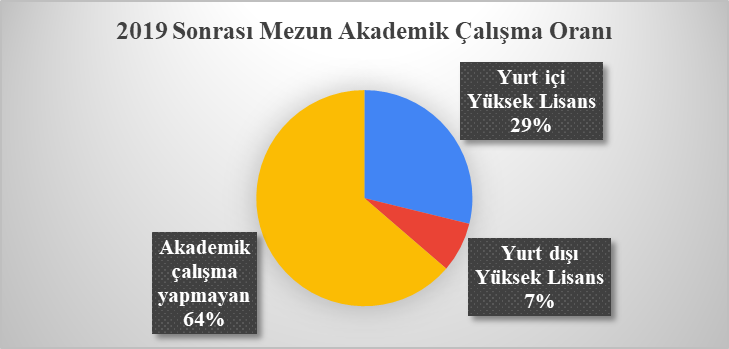
Figure 4
- 26 of our 629 graduates completed a Double Major in Architecture, Mechanical Engineering and Electrical Engineering.
- 47 of our master's students have completed or are doing their master's degree in foreign universities.
Institutions and Firms Where Our Graduates Work
- 36. paralel mimarlık
- 3s Kale Holding
- Abank - İstanbul
- Acun Medya
- Açı İnşaat
- Adıgüzeller İnşaat
- AG Çelik Hasır
- Ahes İnşaat
- Akgün Yapı
- Akım elektronik
- Akoğlu Yapı
- Alarahan Mimarlık
- Alusan Aluminyum
- Ankas Mühendislik
- Ant Yapı, Manzara Adalar Projesi
- APC Yapı A.Ş
- Apple Inc. / İstanbul
- Ar Arslan İnşaat
- Arkoçlar İnşaat
- ARM Yapı Denetim
- Arup
- AS-TA Mühendislik - Muğla
- ASA İnşaat Makina Tic. ve San. Ltd. Şti.
- Asger Çelik
- ASTTA Mühendislik
- Aşıkoğlu Yapı İnşaat Ltd. Şti.
- Ataşehir Belediyesi
- Ataymak
- Atlas Yapı Denetim - Kastamonu
- Aula İnşaat Mimarlık Mühendislik
- Aydın İnşaat
- Aygen Teknik - İstanbul
- Aytaç Proje İnşaat
- Azim İnşaat
- B-Lab Software Technology
- Başergün İnşaat
- Bayl Yapı ve İnşaat Ltd. Şti.
- Bayraktar İnşaat
- Baysal Metal Tic. Ltd. Şti.
- BBİ Uluslararası Taşımacılık
- Beximport Gıda Elektronik İthaalat İhracat Tic.Ltd.Şti.
- Bipa - Nurpa Holding / Mardin
- Bipa Holding
- Boğaziçi üniversitesi - İstanbul
- Bozgülek Yapı Denetim - Kocaeli
- Bozgülek yapı denetim limited şirketi/kocaeli
- BRK Çetin İnşaat
- Bukan Yapı İnş.
- Burkay Günaçtı Şahıs Şirketi
- Büyük Çamlıca Peyzaj
- Canatanlar İnşaat San. Tic. Ltd. Şti. - Beton Santralleri
- Canhan Yapı Denetim
- Cemtaş - İzmir
- Cengiz & First Kuwaiti JV Şirketi - Kuveyt
- Cihan İnşaat
- Cihangir Grup / EUROCON İnşaat Yatırım A.Ş.
- Ck Grup Mühendislik ve Mimarlık
- CMZ Yapı Ltd. Şti.
- CNP Yapı - Antalya
- Cumrat İnşaat
- Çağan yapı insaat gayrimenkul
- Çağdan Mühendislik
- Çakırtek Mühendislik
- Çalışkanlar Beton Mad.Yapı Malz.Nak.İnş.Turz.San.ve Tic.Ltd.Şti.
- Çelemler AŞ.
- Çelik Grup Kentsel Dönüşüm ve Taahhüt Projeleri
- Çelik Motor
- Çeşen Mühendislik
- Damga Yapı Denetim - Tahincioğlu Bomonti Nidakule Şantiyesi
- DAP Yapı
- Deerns
- Deltek Modern İnşaat Uygulamaları San. Ve Tic. A.Ş.
- Demirkon A.Ş. - Gümüşhane
- Demirli İnşaat Sanayi ve Ticaret A.Ş
- Den Haag - Hollanda
- Dere Construction
- Desen Mermer - Batman
- DGD Mühendislik
- Doğan Yapı
- Doğuş Otomotiv
- Dzekos d.o.o
- Ecemar İnşaat;Ece Marina Suites;Ece Yatçılık
- Eduka Yapı
- Ege Asfalt Maden İnş. Nak. San. Ve Tic. A.Ş.
- Ege Yapı Grup
- Ege Zeybek Yapı Denetim
- Ege Zirve İnş. - Bursa
- Egemen İnşaat Tic. A.Ş.
- Ekaş A.Ş.
- Eko İnşaat ve Ticaret A.Ş. - Romanya
- Elevation Flooring - İstanbul
- Emta Energy
- ENKA İnşaat
- Entegre Proje Yonetim - İstanbul
- Enver Tekstil
- Erhan Tozan Müh. ve Danışmanlık Statik Proje ve Tasarım - Muğla
- Erk İnşaat Taahüt Sanayi
- Erpak İnşaat
- Ertekler Yapı - Edirne
- Eskiz Mimarlık - Antalya
- Esta Construction - Rusya
- Fazlı Şeker İnş.
- FCÇAT Yapı
- FCN Enerji
- Fenercioglu A.Ş - Antalya
- Ferko Ltd. Şti.
- Fimay yapı - Bandırma
- Formül Madencilik
- Fortune İnşaat
- Freysinnet - İtalya
- Friterm - İstanbul
- Gemsan Asansör İnşaat Ltd. Şti.
- General Electric
- Gökyol İnşaat
- Görgülü İnşaat
- Görgülü İnşaat, İstanbul Tower Projesi
- Gur-Ya Construction Co Ltd
- Gülermak-Kolin-Kalyon Metro Yapım Ortaklığı, İstanbul
- Gülermak-Nurol Ümraniye Metro Hattı Projesi
- Gün İnşaat - Sakarya
- Güner İnşaat
- GYA İnşaat - Zirve Holding
- Hakyapı İnşaat - İstanbul
- Hatipoğlu İnşaat Bürosu
- HBZ Holding - İzmir
- Hektaş Holding-Emek Yapı Yatırım İnşaat Tic.Ltd.Şti
- Hive Tasarım ve Teknoloji A.Ş
- Hofu - Gürcistan
- Hyundai Engineering & Construction and SK Engineering & Construction Joint Venture
- IC İctas-Astaldi JV
- İçel Mimarlık
- İdakon yapı
- İGA (İstanbul 3. Havaalanı)
- İkram İnşaat - Adana
- İmall Yapı İnşaat
- İmta Endüstriyel - Ankara
- İmza Sağlık, Ortak Sağlık ve Güvenlik Birimi - Kayseri
- İnha İnşaat
- İntaya İnşaat Taahhüt Yatırım A.Ş
- İntim inşaat/ Ankara
- İSU - Kocaeli
- Kaan elektronik
- Kalyon İnşaat
- Kamur İnşaat
- Karasu İnşaat
- Kare Steel Construction
- Kayalar Müh. Yapı A.Ş.
- Kayaoğlu İnşaat
- Kayaoğlu İplik ve Plastik - Gaziantep
- Kayı İnşaat Taahhüt
- Kazdallar İnşaat Turizm, Şantiye Şefi (Aile Şirketi)
- Keller Williams Boğaziçi
- Kent İnşaat
- Kervana İnşaat - Çorlu
- Kipaş Holding
- Kiptaş İstanbul Konut İmar Plan Tur. Ulaş. San. Ve Tic. A.Ş.
- KMY Eğitim ve Danışmanlık
- LBA Mühendislik
- Lik Yapı İnşaat Mad. San. Ve Tic. Ltd. Şti.
- Limak Kuveyt Havalimanı Projesi
- Madanoğlu Yapı İnşaat ve Taahhüt
- MAG Mühendislik Hizmetleri Ve Tic. Ltd. Şti.
- Mak-yol Hasdal-Çatalca Devlet Yolu
- Marmara Development Co.
- Mavia Yapı
- Megaprojeler İnşaat Turizm San. Ve Tic. A.Ş. - Birleşik Arap Emirlikleri
- Mersin International Port
- MGF İnşaat
- MHC Mühendislik - Ankara
- Mimsa - İstanbul
- MLH İnşaat Yapı
- MNG Zemtaş - Suudi Arabistan
- Moda Yapı
- Mumcular Çelik Konstrüksiyon
- Net Holding - Merit Otelleri-Kuzey Kıbrıs
- Nilüfer Proje Tasarım - Bursa
- Nuhoğlu İnşaat
- Olmetsan Metal
- Omni Sigorta
- Ordu Kaya İnşaat
- Oytaş-Yıldız İnşaat, Sanayi ve Ticaret A.Ş.
- Ömer Bayram İnşaat ve Gökçen Bayram İnşaat ve Mimarlık
- Önük İnşaat - Adana
- Özel İnş. Taah. San. Ltd. Şti. / KUZEY İnş.Taah. Maden San. Ltd. Şti.
- Özerson İnşaat Mühendislik
- Özka İnşaat
- Özka Ortaklar
- Özlem Grup Ticaret İnsaat Gıda ve Iht. Mad. Paz. San. ve Tic. A.Ş.
- Özler Kalıp ve İskelet Sistemleri
- Perform Mühendislik - İstanbul
- Prestij Motorlu Araçlar Tic. San. Ltd. Şti.
- Primetal Technologies
- Prj Mühendislik
- Prokon Mühendislik ve Müşavirlik A.Ş.
- Promer Mühendislik Müşavirlik A.Ş.
- Pronet Mühendislik
- Prozon Mühendislik - İzmir
- RC Yapı
- Reinforcement Engineering, Londra
- Reisoğlu Mermer
- Remax-Gayrimenkul
- Renaissance Construction, St. Petersburg, Rusya
- Rom Mühendislik Yapı İnşaat Mimarlık - Afyonkarahisar
- Roya Yapı İnşaat
- Samar Yapı Denetim
- Seral İnşaat
- Sezer Proje Mimarlık Mühendislik Müşavirlik İnşaat Taah. Tic. Ltd. Şti.
- SF İnşaat
- Sigma Mühendislik
- Sigma Mühendislik
- Simay Yapı
- Sinop Belediyesi - İmar ve Şehircilik Müdürlüğü
- Siska İnşaat - İstanbul
- SNH İnşaat
- Socar Star Rafineri İnşaatı Altyapı İmalatları
- Sur İnşaat - İstanbul
- Synergy Construction - Gürcistan
- Şahinler Endüstriyel Demir
- Şantiye Destek Proje Yönetimi
- Şayık İnşaat - Bursa
- Şenbay-Kolin-Kalyon D.B Metro Yapım Ortaklığı
- Şişik Alüminyum
- Tahir Tarhan İnş. Elektrik Müh. San. ve Tic. Ltd. Şti.
- Taht Dış Ticaret İnşaat A.Ş. (Bankacılık ve Uluslarası Ticaret)
- Target Teknik Araştırma, Geliştirme, Danışmanlık, İnşaat San. Ve Tic. Ltd. Şti.
- Taş Dünyası Doğal Taşlar Madencilik İnşaat San. ve Dış Tic. Ltd. Şti.
- Taşkent Enerji Santrali - Özbekistan
- Taşyapı İnşaat - Sremska Mitrovica
- TAV - Sera Construction
- TE mühendislik
- Tekfen İnşaat - Katar Alkhor Expressway projesi
- Tekirdağ Muratlı Belediyesi
- Tekyapı Mühendislik
- Temat - Gözlem karayolları müşavirlik
- Timka Mühendislik İnşaat Tic. ve San. Ltd. Şti.
- Torunlar Real Estate Investment Company
- Turan Yapı
- Turna Yapı Denetim
- Turner consruction
- Tuval Zeytin Sanatı - Bursa
- Türkiye Vakıflar Bankası Genel Müdürlüğü
- Türkmenler Metal Yapı - İstanbul
- Tüvtürk
- Ulaştırma Bakanlığı
- Umut Hafriyat
- Uyalım Dekorasyon Dizayn
- Veka İnşaat - Ankara
- Versus Enerji - İnta Endüstriyel Ortaklığı
- Vortex Mühendislik - Malatya
- VYM Yapı Mühendislik
- Werner & Balci Mühendislik İnşaat
- Yapı Akademisi
- Yapı Ticaret Koll. Şti.
- Yapıartı - Amsterdam
- Yapıkur İnşaat A.Ş.
- Yatırım İnşaat - Lüleburgaz
- YCY Yapı Mühendislik - Eskişehir
- Yeditepe Üniversite/İstanbul
- Yeditepe Üniversitesi
- Yenigün & Dere Construction Ortak Girişimi
- Yenigün İnşaat Suudi Arabia
- Yenişehir Belediyesi Fen İşleri Müdürlüğü
- Yıldız Tan Orman Ürünleri S.T. Ltd. Şti.
- YP İnşaat
- YTC İnşaat
- Yüksel Proje, Bakırköy-Kirazlı Metro
- ZEM Yapı
- Zetas Zemin Teknolojisi - Dubai
- ZNG İnşaat - Gaziantep
Mezunlarımızın Lisansüstü Eğitime Devam Ettiği Kurumlar
- Akdeniz Üniversitesi - İnşaat Mühendisliği - Yapı Mühendisliği
- Akdeniz Üniversitesi - İşletme
- Bahçeşehir Üniversitesi - İşletme
- Bilim ve Teknoloji Üniveristesi - İş Sağlığı ve Güvenliği
- Boğaziçi Üniversitesi - Yapı Malzemeleri
- Boğaziçi Üniversitesi - İnşaat Mühendisliği Yönetimi
- Boğaziçi Üniversitesi - Kandilli Rasathanesi Deprem Mühendisliği
- Boğaziçi Üniversitesi - Yapı Mühendisliği
- Boğaziçi Üniversitesi - Yapım Mühendisliği ve Yönetimi
- Bologna Varşova Ekonomi ve Beşeri Bilimler Üniversitesi
- Brunel University- London International Business
- Budapest University of Technology and Economics- Structural Engineering
- Bursa Teknik Üniversitesi
- Çanakkale Onsekiz Mart Üniversitesi - İş Güvenliği
- Çukurova Üniversitesi
- Dokuz Eylül Üniversitesi - Finans
- Duke University, Master of Management Studies, Fuqua School of Business, USA
- Gebze Teknik Üniversitesi, Deprem ve Yapı Anabilim Dalı
- Gedik Üniversitesi İSG
- HULT International School of Business
- İstanbul Bilgi Üniversitesi - Marketing Communication
- İstanbul Teknik Üniversitesi - Deprem Mühendisliği
- İstanbul Teknik Üniversitesi - Hidrolik Anabilim Dalı
- İstanbul Teknik Üniversitesi - İnşaat Projeleri Yönetimi
- İstanbul Teknik Üniversitesi - Jeoloji Mühendisliği
- İstanbul Teknik Üniversitesi - Mimarlık
- İstanbul Teknik Üniversitesi - Yapı İşletmesi
- İstanbul Teknik Üniversitesi - Yapı Mühendisliği
- İstanbul Teknik Üniversitesi - Zemin Mekaniği ve Geoteknik Mühendisliği
- Karlsruhe Institut of Technology - İnşaat Mühendisliği - Yapı Mühendisliği
- Kingston University - MSc in Construction Management - London, UK
- London City University - MSc in Construction Management - London, UK
- Maltepe Üniversitesi - İşletme
- Marmara Üniversitesi - Pazarlama
- MEF Üniversitesi - İnşaat Yönetimi
- Mersin Üniversitesi - İnşaat Mühendisliği
- Mimar Sinan Güzel Sanatlar - Mimarlık
- Muğla Sıtkı Koçman Üniversitesi
- Okan Üniversitesi - İşletme (MBA)
- Oxford Brookes University - MSc Construction Project Management
- Politecnico di Milano - Building and Architectural Engineering
- Politecnico di Milano - Master in Business Analytics and Big Data
- Regent's University - Londra
- Robert Gordon University
- Rumeli Üniversitesi - İş Sağlığı ve Güvenliği
- Rutgers Üniversitesi - ABD
- Süleyman Demirel Üniversitesi - İktisat
- Uludağ Ünviversitesi - Yapı Mekaniği
- Varşova Teknik Üniversitesi - İnşaat Yapıları
- Vilnius Gediminas Technical University - Yapı Mühendisliği
- Yeditepe Üniversitesi - İnşaat Mühendisliği
- Yeditepe Üniversitesi - İş Sağlığı ve Güvenliği
- Yeditepe Üniversitesi - İşletme (MBA)
- Yeditepe Üniversitesi - Mimarlık
- Yeditepe Üniversitesi - Veri Bilimi
- Yıldız Teknik Üniversitesi - Kıyı ve Liman Mühendisliği
- Yıldız Teknik Üniversitesi - Yapı Anabilim Dalı
- Yıldız Teknik Üniversitesi - Yapı İşletmesi
- Yüzüncü Yıl Üniversitesi - İnşaat Mühendisliği
Civil Engineering
Design, contracting and inspection firms in construction should be independent from each other
Education Center - Civil Engineering and Job Opportunities
Earthquake Engineering
Before and After Earthquake Symposium from Civil Engineering Perspective
Competent engineering for buildings that will not collapse in an earthquake
Influence of silt on soil liquefaction
Effect of fines on soil liquefaction; practical applications and research findings
February 6, 2023 Earthquakes Geotechnical Observations and Evaluations Webinar Series-2
Sustainability and Environment
Disaster Risks and Ecological Impacts after Forest Fires Webinar
Expert academics meet for "fighting forest fires"
Are We Trying to Reduce Our Plastic Footprint?
Experts warn of increasing microplastic pollution in the world
Attention to plastic footprint
Turkey has generated approximately 5 million 600 thousand tons of plastic waste in the last 1 year
Transportation
Historic decision for historic bridges
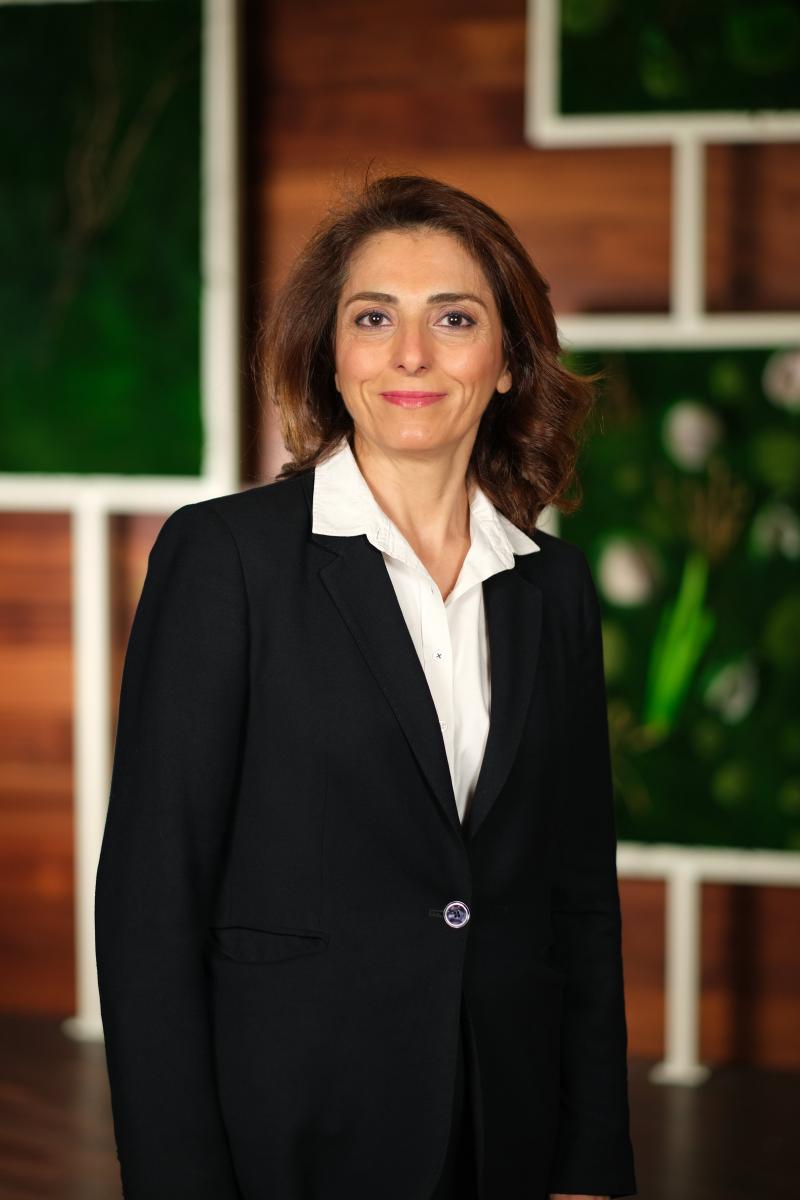
Civil Engineering, being one of the oldest engineering disciplines, has an important role of contributing to the safe, sustainable and urban living of mankind. Today, a considerable number of our young people select this profession with an ambition to push the borders, to generate tomorrow’s world and at the same time to increase their own standard of living to higher levels.
The Civil Engineering Department is well aware that, high quality education and strong research programme are the two essential factors that make a well established institution. The Department’s vision is to graduate both nationally and internationally well recognized engineers and to provide service to Civil Engineering profession along with public benefit. To this aim, we define our Department’s mission as “to prepare the students as responsible, open minded, theoretically and practically well equipped, creative, ethical, sociable, team player individuals that are concerned about the public benefits, so that they can contribute to their profession”.
During their four-years study the students gain knowledge on engineering sciences and fundamental knowledge on each of the civil engineering disciplines, including structural engineering, geotechnics, transportation, hydraulics, construction materials, environmental engineering and construction management. The elective courses in the curriculum provide the students the opportunity to broaden their knowledge on their interest area. They also have the opportunity to get acquaintance with the real work environment early in their educational life, by means of the two practical internships they complete during their study.
As prospective civil engineers, while gaining skills on computers, foreign language, engineering sciences and professional knowledge, our students also participate in various activities, such as career days and conferences, which improve their abilities and talents in various areas including, ability to work in teams, to being creative, to design, to be successful in business and social life, and to acquire lifelong learning skills. Our Department, with close ties to construction sector and NGO’s, also organizes activities involving engineering practice such as construction site visits and sectorial exhibitions, organizes collaborative international symposiums and conferences, provide opportunities to the students to join student club activities and student competitions.
Turkish construction sector has important contributions to the national economy and is among the highest rank in the world business. The graduates of our Civil Engineering Department, equipped with education in English, can work in national or foreign companies that operate in our country or abroad; or can start up their own private business enterprise or pursue an academic career. Many public institutions, municipalities or their affiliates are in a continuous need of civil engineers. Besides the fact that Civil Engineering is one of the oldest engineering disciplines, the need for Civil Engineers has never declined and the business opportunities in diverse areas are almost infinite.
Laboratories
Students of Civil Engineering Department will benefit from Topography, Soil Mechanics and Construction Materials Laboratories as well as Computer, Drawing and Fluid Mechanics Laboratories at the Faculty. Experiments and applications are provided in these laboratories with modern equipments.
One of the founders and former head of the Yeditepe University Civil Engineering Department, previous president of the Turkish Structural Steel Association and the European Structural Steel Association (ECCS), ECCS Silver Medal and Charles Massonnet Science Award winner, the first female board member and the first female chairman of ECCS and has served as the chairman twice with an interval of five years, one of the most prominent scientists in the field of construction and steel in Turkey, Prof. Dr. Nesrin Yardımcı Tiryakioğlu, passed away on 18.11.2022. May Prof. Dr. Nesrin Yardımcı Tiryakioğlu rest in peace. We wish patience and condolences to her family, friends and students.
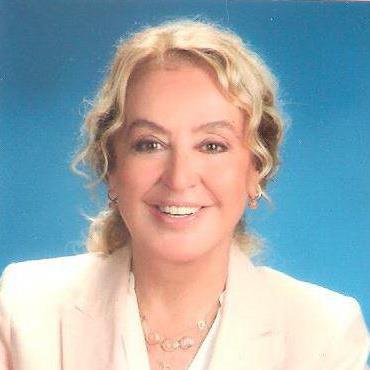
Following her graduation from Erenköy Primary School and Erenköy High School, Nesrin YARDIMCI TİRYAKİOĞLU pursued her education in İstanbul Technical University at the Faculty of Civil Engineering and graduated with Master’s degree in Civil Engineering. She held several positions as a Senior Civil Engineer at Profilo Holding and at General Directorate of State Hydraulic Work between 1966 and 1972. She then joined İstanbul Technical University in January 1972 to carry out her academic career and obtained her PhD in March 1980. She was appointed Assistant Professor in March 1984, Associate Professor in October 1990 and Professor in April 1996.
Prof. Yardımcı, did not only serve as a lecturer at İstanbul Technical University between 1972 and 2008, but also was the Member of the Board at Civil Engineering Faculty between 1995 and 1996 and also between 1998 and 2007. She was the Directorate of Culture and Art Association between 1999 and 2002. She was also the group Coordinator of the Timber and Steel Structures between 2000 and 2007 and Graduate Program Coordinator between 2002 and 2007. Between 2001 and 2007, she represented Faculty of Civil Engineering at the Senate of İstanbul Technical University. Since September 2008, she has been serving as a Full Professor and since 2012 also as a Chair at Civil Engineering Department, at the Faculty of Engineering at Yeditepe University. She was the Member of the Board at the Faculty between 2011 and 2014 and she represented Faculty of Engineering at the Senate of Yeditepe University between 2015 and 2018.
She was elected as the President of the Board of Directors at Turkish Structural Steelwork Association between 2001 and 2016 and represented Turkey in the Board of Directors at the European Convention for Constructional Steelwork (ECCS) between 2001 and 2018. She was also elected as Vice President between 2008-2009 and President between 2009- 2010 and 2014-2015 at ECCS. Prof. Yardımcı is the first female member of the Board of Directors and is the first female President of ECCS, which was founded in 1955.
Prof. Yardımcı taught both undergraduate and graduate students at İstanbul Technical University, and during this time she was also appointed to teach at İstanbul, Sakarya and Marmara Universities from time to time. She is still teaching at Yeditepe University Civil Engineering department. She has had 11 English 17 Turkish journal papers, 24 international and 16 national conference papers. She also published 5 research projects, 3 books in Turkish and she is the editor of 2 international symposium books. She has supervised 30 Master and 5 PhD theses and she has been the jury member of 71 Master and 16 PhD theses.
Prof. Yardımcı has organised three symposiums for ECCS. Namely “International Symposium on Steel Structures 2010: Culture & Sustainability”, “8th International Symposium on Steel Bridges 2015: Innovation & New Challenges” and “International Symposium on Corrosion and Surface Protection for Steel (CASP 2019)”.
She worked together with groups made up of İstanbul Technical University’s professionals for ascertainment of damage, repair and retrofitting studies following various earthquakes in earthquake zones in Turkey and she completed various projects auditing and supervising studies.
After her presentations and contacts in ECCS about the earthquakes in Turkey, she has completed a steel building project for a school which was heavily damaged in 1999 earthquake in Kocaeli together with national and international supporters.
When she was the president of TUCSA, she has initiated works to convince the relevant governmental bodies to publish Regulation for Design, Engineering and Execution of Steel Structures starting from December 2006. She has also initiated establishment of TUCSA Academy to organise courses on constructional steelwork for engineers and architects. She is the chairperson of the TUCSA Academic Board.
She was awarded with success in profession prize on 21 April 2010 “for her contribution to Turkish Structural Steelwork Association and for being the president of ECCS” by Tuzla Rotary Club and was honoured with ECCS Silver Medal on 18 September 2015 “in recognition for her outstanding commitment to ECCS”. She was selected by Erenköy High School Associationon as “one of the 102 Erenköy High School graduates who added so much to science, arts and culture on the 102. Anniversary of the school” on 5 October 2019. She was nominated by ECCS Scientific Jury to receive “2019 Charles Massonnet Award” “for the work she has achieved among ECCS Technical and Executive Boards as an active member and the role ECCS President as twice” and approved on 16 April 2019 by ECCS Executive Board Members.
Our Department of Civil Engineering has been founded on 26.03.2008 as a department of the Engineering and Architecture Faculty of Yeditepe University, which has been officially founded by Istanbul Education and Culture Foundation at 07.06.1996 by the law numbered 4142.
Admission of undergraduate students and hence undergraduate education has began in 2008-2009 Fall Semester. Soil Mechanics and Construction Materials Laboratories have been deployed and become operational in 2010. Double Major programmes are also established in 2010.
Following the separation of Architecture Department, the faculty has been renamed as Faculty of Engineering in 26.08.2014. The graduate programme in Civil Engineering has been approved on 15.09.2015.
As of 2018-2019 academic year, the department’s full-time academic staff of the department consists of 2 Professors, 6 Assistant Professors, 1 Instructor, Ph.D., 1 Research Assistant and 1 Professor from the Materials Science and Nanotechnology Department. Besides the full-time staff, further academicians are also participating in teaching acvities, employed in different universities such as ITU and YTU. The assisting staff consists of 8 graduate scholars and a laboratory technician.
The Civil Engineering Department was founded in 2008 with 45 admitted students, and first group of students were graduated in 2012. As of 2018-19 Academic Year, the Department had 93 students attending the English preparatory school, 467 students in the undergraduate studies and 13 graduate students. 34 students were graduated at the Fall and 57 students were graduated at the Spring semester of the 2018-2019 Academic Year, totalling 91 students this year. Since its foundation the Department has graduated 367 students.
Today, the construction industry progresses at an incredible pace. In this context, new buildings and projects are seen around every day. In such an industry that is advancing at an unstoppable pace, there is a natural need for engineer brains to carry out engineering activities in the field of construction. In this context, Civil Engineering Departments were established to meet the needs of civil engineers. In these departments, where 4-year undergraduate education is given, courses focused on mathematics, physics and materials technology are given. Students are provided with training on the design, analysis, construction and maintenance of structural places such as dams, ports, roads and buildings, and in this context, they are provided with the necessary equipment. Civil Engineering Department also aims to raise productive and creative individuals who develop optimum solutions to physical events. After 4 years of undergraduate education, graduates of the department have the title of Civil Engineer. The persons in question have the authority to sign under the construction projects. In other words, a building cannot be designed without a civil engineer, and naturally it cannot be built.
Yeditepe University offers different scholarship opportunities for its students. You can get detailed information about scholarship opportunities by reviewing the Civil Engineering Scholarship Opportunities page. From here, you can click on the relevant page and see the departments and scholarship opportunities.
Our Mission
Our mission is to train engineers who are well-equipped in theoretical and applied fields, who are creative, have ethical values, are responsible, have strong social relations, can work in teams, and have the ability to adapt to national and international environments; To serve the current needs of society and the development of the profession.
Our Vision
Our vision is to conduct research at national and international level, preferred by successful undergraduate and graduate students, graduates of which are successful in practice and research institutions at home and abroad; To be a department that can produce positive contributions to science, industry and humanity.
Our aims as Yeditepe University Civil Engineering Department
Our graduates;
1- They can work in the fields of design, implementation and project management in multinational business environments.
2- They rise to a decision-making position in national and international organizations, they can become managers.
3- They can contribute to the production of scientific studies at national and international level.
Yeditepe University Civil Engineering applies an effective Bologna Process to its students during their education. The aim of Bologna Drive is to standardize the non-standard practices that have occurred between the elite universities of Europe and our department. In this process, the student continues his education life in a more equipped way.

2016 Graduate
The first step for civil engineers to be successful is to have the ability to put the theoretical knowledge you have acquired at university into practice in your professional life. The main reason why I chose Yeditepe University Civil Engineering Department is not only the quality of the education I will receive in this department, but also the two internships we completed during our education, the field and factory visits we made during our education life, the seminars and trainings given by successful people in their profession, and the ability to use the knowledge we learned at school in business life. As a civil engineer at the beginning of his career, when I compare myself with the colleagues I work with, I once again realized how important it is that the modern and visionary education I received at Yeditepe University addresses the needs of business life. In addition, the fact that the language of instruction is English and the sensitivity of the faculty members to the active and correct use of English will be another gain for my colleagues who want to develop their careers in international companies. Being able to easily reach faculty members who are experts in their fields, and being able to consult your questions about both education and future planning will put you one step ahead while determining your career goals.

2017 Graduate
The logical, analytical and critical thinking skills that I gained as a graduate of Yeditepe University Department of Civil Engineering have given me many privileges in my professional and academic life. In line with these skills, I have learned to use the knowledge I acquired during my student period in my professional life. As a graduate working in construction projects abroad, I feel the universality of the education we received and the advantage of the courses being taught in English. Social and cultural activities, group studies, student presentations, technical trips and laboratory studies have helped me to develop myself as a self-confident individual with high communication skills and prone to group work. The chance to be in constant dialog with our esteemed faculty members during my student period, an active education and our ongoing communication afterwards offered the opportunity for lifelong learning.

2019 Graduate
I am a 4th year student of civil engineering and architecture. I have always wanted to study civil engineering at Yeditepe University. The small number of students in the classes gives you the opportunity to have one-to-one lessons with the teachers. You can go to his/her room and talk to him/her personally about anything you want and they are all good, expert teachers in their fields. It is a department with sufficient laboratories and equipment. The campus environment of the school is very nice. You can participate in education programs as you wish. Double major, minor, overseas etc. It is a department and school that really supports you to do it. There are many conferences, theaters, events during the year. It is very suitable for self-development and a social university life. I think the education program and the intensity of the courses are very good, you study intensively, and the fact that the education is in English is also an advantage.
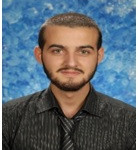
2019 Graduate
In 2014, Yeditepe University Civil Engineering Undergraduate Pr. Before sharing my experiences about my school and my department, I would like to say to my friends who are considering this department; civil engineering is a department that adds excitement every time you learn something new, is in constant change and development, and offers you the opportunity to develop yourself in many different fields. As much as I have seen in my 2-year faculty life and heard from the conversations around me, it is a very in-depth department. In 2014, when I started my preparatory education, I was seriously excited because I was going to get a serious English education and I can say that this 1-year education fully met my expectations. Yeditepe University Preparatory School adds a lot to its students in terms of reading, writing, listening, grammar and speaking, which are the basic branches of a language. Regular studies; I can say that the progress of everything by explaining everything brings us to good places in this language. After an active preparatory education, my faculty life started, which was my main curiosity and excitement. The main questions I had when I first started the department were: ' I wonder if the school offers extra language opportunities, ' Are the professors really like in the movies; are they the ones who only enter and leave the classes; are they the ones who do not communicate with the students at all, or ' Will the education I will receive be enough for me? ' To answer in order; Yeditepe University offers us the opportunity to learn languages such as Russian, German, Chinese, Spanish French within the scope of non-credit language courses it offers, and it is an undeniable fact that learning an extra language for an engineering student will be a great advantage for him in his future life. As an answer to my second question, I can say that all my professors in the department courses and pool courses are very well-equipped, sincere and friendly people who are sincere and friendly, who are never afraid to get away from the dialog with the students and help them with their questions. I can say this with all my sincerity to my friends who will apply to this school and department. Regarding the subject of education, which is the question that I still continue to get answers to, I think that Yeditepe University provides a good education both in department courses and pool courses. The information we learn in department courses is given the chance to reinforce in laboratories; learning is made permanent. I can say to my friends who will apply for Civil Engineering Pr.: The department and our professors will saturate us in terms of all kinds of professional knowledge and professional culture. As long as we are eager to learn. I wish all my friends success in their exams!
| Program Outcomes | Description |
|---|---|
| 1a | Knowledge of mathematics, science, and discipline-specific topics in engineering. |
| 1b | Ability to apply theoretical and practical knowledge in these areas to solve complex engineering problems. |
| 2a | Ability to identify, define, formulate, and solve complex engineering problems. |
| 2b | Ability to select and apply appropriate analysis and modeling methods for this purpose. |
| 3a | Ability to design a complex system, process, device, or product under realistic constraints and conditions to meet specific requirements. |
| 3b | Ability to apply modern design methods for this purpose. |
| 4a | Ability to select and use modern techniques and tools necessary for the analysis and solution of complex engineering problems. |
| 4b | Ability to effectively use information technologies. |
| 5a | Ability to design experiments for investigating complex engineering problems or discipline-specific research topics. |
| 5b | Ability to conduct experiments, collect data, analyze results, and interpret findings. |
| 6a | Ability to work effectively in discipline-specific teams. |
| 6b | Ability to work effectively in multidisciplinary teams. |
| 6c | Ability to work independently. |
| 7a | Effective communication skills in Turkish, both written and oral. |
| 7b | Proficiency in at least one foreign language. |
| 7c | Ability to write effective reports, understand written reports, and prepare design and production documentation. |
| 7d | Ability to deliver effective presentations. |
| 7e | Ability to give and receive clear instructions. |
| 8a | Awareness of lifelong learning; ability to follow scientific and technological developments and continuously renew oneself. |
| 8b | Ability to access information effectively. |
| 9a | Behaving in accordance with ethical principles and having a sense of professional and ethical responsibility. |
| 9b | Knowledge of standards used in engineering practices. |
| 10a | Knowledge of project management, risk management, and change management. |
| 10b | Awareness of entrepreneurship and innovation. |
| 10c | Knowledge of sustainable development. |
| 11a | Knowledge of the impact of engineering practices on health, environment, and safety at universal and societal levels. |
| 11b | Knowledge of current issues reflected in engineering disciplines. |
| 11c | Awareness of the legal consequences of engineering solutions. |
| 12 | Knowledge about procurement processes and tender procedures. |
| 13 | Knowledge of interactions between designers and constructors during the design and construction processes. |
Relationship between Program Outcomes and Department Required Courses
|
PÇ / Course |
CE 101 |
CE 162 |
CE 221 |
CE 231 |
CE 232 |
CE 236 |
CE 262 |
CE 300 |
CE 341 |
CE 351 |
CE 354 |
CE 361 |
CE 363 |
CE 372 |
CE 381 |
CE 382 |
CE 400 |
CE 441 |
CE 462 |
CE 488 |
CE 491 |
CE 492 |
CE 493 |
|
1a |
X |
|
X |
X |
X |
X |
|
|
X |
X |
X |
X |
X |
|
X |
X |
|
X |
|
X |
X |
X |
X |
|
1b |
|
X |
X |
X |
X |
X |
|
|
X |
X |
X |
X |
X |
|
X |
X |
|
X |
|
X |
X |
X |
X |
|
2a |
|
|
|
X |
X |
X |
X |
|
X |
X |
X |
X |
X |
|
X |
X |
|
X |
|
X |
X |
X |
X |
|
2b |
|
|
|
|
|
X |
|
|
X |
|
X |
X |
X |
|
X |
X |
|
|
|
|
X |
X |
X |
|
3a |
|
|
|
|
|
|
|
|
|
|
|
|
|
|
|
|
|
X |
|
|
X |
X |
X |
|
3b |
|
|
|
|
|
|
|
|
|
|
|
|
|
|
|
X |
|
X |
|
|
X |
X |
X |
|
4a |
|
|
|
|
|
|
|
|
|
|
|
|
|
|
|
|
|
|
|
|
|
X |
|
|
4b |
|
|
|
|
|
|
|
|
|
|
|
X |
|
|
|
|
|
|
|
X |
|
X |
|
|
5a |
|
X |
X |
|
|
|
|
|
X |
|
|
|
|
|
|
|
|
|
|
|
|
|
|
|
5b |
|
X |
X |
|
|
|
|
|
X |
|
|
|
X |
|
|
|
|
|
|
|
|
|
|
|
6a |
X |
X |
|
|
|
|
X |
|
X |
|
|
|
|
X |
|
|
|
|
X |
|
|
X |
|
|
6b |
|
|
|
|
|
|
X |
|
|
|
|
|
|
X |
|
|
|
X |
|
X |
|
|
|
|
6c |
|
X |
|
X |
X |
X |
X |
|
|
X |
X |
X |
X |
X |
X |
X |
|
|
X |
X |
X |
X |
X |
|
7a |
|
|
|
|
|
|
|
|
|
|
|
|
|
|
|
|
|
|
|
|
|
|
|
|
7b |
X |
|
|
|
|
|
|
X |
|
|
|
|
|
X |
|
|
X |
|
X |
|
|
X |
|
|
7c |
X |
X |
X |
|
|
|
|
X |
X |
|
|
|
|
X |
|
|
X |
|
X |
|
|
X |
|
|
7d |
X |
|
|
|
|
|
|
X |
|
|
|
|
|
|
|
|
X |
|
X |
|
|
X |
|
|
7e |
|
X |
X |
|
|
|
|
X |
|
|
|
|
|
|
|
|
X |
|
|
|
|
X |
|
|
8a |
|
|
|
|
|
|
|
X |
|
|
X |
|
|
X |
|
|
X |
|
X |
|
|
X |
|
|
8b |
X |
|
|
|
|
|
|
|
|
|
|
|
|
X |
|
|
|
|
X |
|
|
X |
|
|
9a |
X |
|
|
|
|
|
|
|
|
|
|
|
|
X |
|
|
|
|
X |
|
|
X |
|
|
9b |
X |
|
X |
|
|
|
X |
|
X |
|
X |
X |
|
X |
|
X |
|
|
X |
X |
X |
X |
X |
|
10a |
X |
|
|
|
|
|
|
|
|
|
|
|
|
X |
|
|
|
|
X |
|
|
X |
|
|
10b |
X |
|
|
|
|
|
|
|
|
|
|
|
|
X |
|
|
|
|
|
|
|
X |
|
|
10c |
X |
|
|
|
|
|
|
|
|
|
|
|
|
|
|
|
|
|
X |
|
|
X |
|
|
11a |
X |
|
|
|
|
|
|
|
|
|
X |
|
|
|
|
|
|
|
X |
|
|
X |
|
|
11b |
X |
|
|
|
|
|
|
|
|
|
X |
|
|
|
|
|
|
|
X |
|
|
X |
|
|
11c |
X |
|
|
|
|
|
|
|
|
|
|
|
|
X |
|
|
|
|
X |
|
|
X |
|
|
12 |
|
|
|
|
|
|
|
|
|
|
|
|
|
X |
|
|
|
|
|
|
|
X |
|
|
13 |
|
|
|
|
|
|
|
|
|
|
|
|
|
X |
|
|
|
|
|
|
|
X |
|
Courses
• CE 101 Introduction to Civil Engineering
• CE 162 Materials Science
• CE 221 Building Materials
• CE 231 Engineering Mechanics I: Statics
• CE 232 Engineering Mechanics II: Dynamic
• CE 236 Strength
• CE 262 Topography
• CE 300 Summer Internship I
• CE 341 Soil Mechanics
• CE 351 Fluid Mechanics
• CE 354 Hydraulics
• CE 361 Design of Transportation Systems
• CE 363 Earth Sciences
• CE 372 Production Management
• CE 381 Structural Analysis
• CE 382 Reinforced Concrete
• CE 400 Summer Internship II
• CE 441 Foundation Engineering
• CE 462 Safety and Engineering Ethics in Construction
• CE 488 Introduction to Earthquake Engineering
• CE 491 Design of Reinforced Concrete Structures
• CE 492 Engineering Project
• CE 493 Design of Steel Structural Elements


